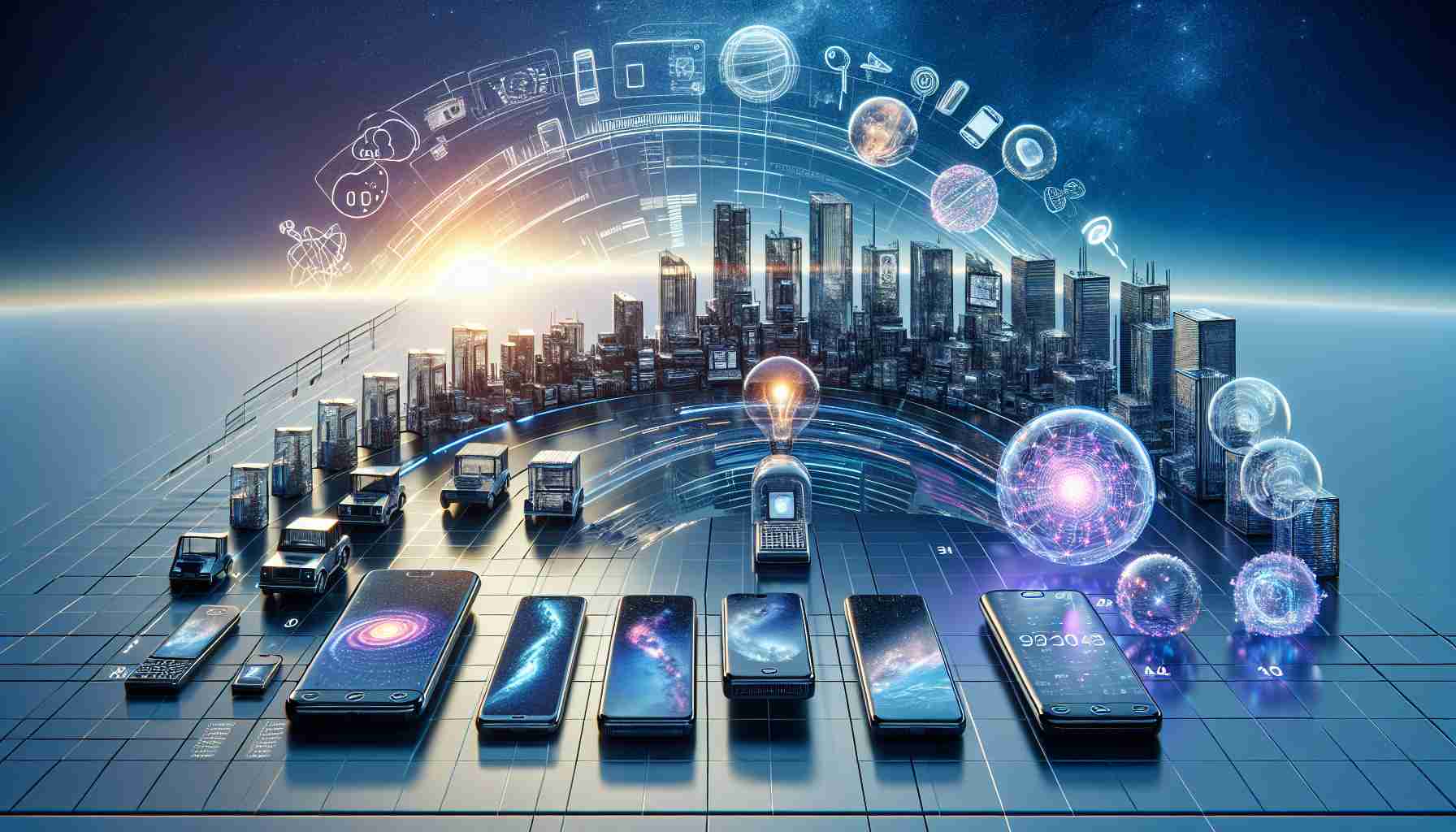Technology has transformed every aspect of our lives, from the devices we use to the cities we live in. The journey from smartphones to smart cities highlights the rapid and innovative developments that have reshaped how we communicate, interact, and navigate the world around us. In this article, we explore the evolution of technology, from the rise of smartphones to the emergence of smart cities, and how these advancements are revolutionizing our future.
The Rise of Smartphones: Revolutionizing Communication
Smartphones have had one of the most significant impacts on technology in the 21st century. Initially introduced as a mobile phone, the smartphone quickly evolved into a powerful device that combines communication, entertainment, and productivity tools in one portable package. Today, smartphones are used for social media, e-commerce, banking, navigation, and much more. With advanced mobile apps, high-speed internet, and AI-driven features, smartphones have become essential tools for both personal and business use.
The Development of Wearables: Enhancing the Human Experience
As smartphones became ubiquitous, another category of tech emerged: wearable devices. Smartwatches, fitness trackers, and other wearables have evolved to offer real-time health monitoring, fitness tracking, and seamless integration with smartphones. These devices help individuals track their heart rate, sleep patterns, and even manage chronic conditions. Wearables have further blurred the lines between technology and daily life, offering more convenience and control than ever before.
The Growth of the Internet of Things (IoT)

The Internet of Things (IoT) refers to the network of physical devices that communicate with each other via the internet. From smart thermostats and connected home security systems to wearables and smart appliances, IoT technology allows devices to work together seamlessly. This evolution has made everyday objects smarter and more intuitive, creating a more efficient and connected world. In the future, IoT will enable even more integration between devices, providing real-time data to improve everything from traffic patterns to energy consumption.
The Emergence of Smart Homes
Smart homes are the next step in IoT’s evolution. With the help of voice assistants like Amazon Alexa, Google Assistant, and Apple Siri, homeowners can control lighting, heating, security, and entertainment systems with simple voice commands or smartphone apps. Smart home technology has made our homes safer, more energy-efficient, and more convenient. As the technology advances, smart homes will become increasingly automated, anticipating needs and adjusting the environment accordingly.
Artificial Intelligence (AI) and Machine Learning: Changing the Way We Live
One of the most exciting advancements in technology is the rise of artificial intelligence (AI) and machine learning. AI is revolutionizing everything from customer service to data analysis and healthcare. Machine learning allows systems to learn from data and improve over time without being explicitly programmed. As AI becomes more integrated into daily life, it is powering smart assistants, autonomous vehicles, and advanced healthcare diagnostics, making our lives more efficient and interconnected.
The Rise of Smart Transportation
Transportation is another area where technology is having a profound impact. From ride-sharing services like Uber to self-driving cars, the evolution of transportation technology is transforming how we move around cities. Autonomous vehicles are set to revolutionize travel by reducing traffic accidents and improving the efficiency of public transportation systems. Electric vehicles (EVs) and hyperloop technology are also reshaping the future of travel, making transportation more sustainable and environmentally friendly.
The Future of Smart Cities
Smart cities represent the pinnacle of technological evolution, integrating various digital technologies to improve urban living. These cities use data-driven solutions to manage resources, improve infrastructure, and provide better services to residents. From smart traffic systems that reduce congestion to energy-efficient buildings that lower carbon footprints, smart cities aim to create sustainable and efficient urban environments. 5G networks, IoT sensors, and AI analytics will play a major role in making smart cities more livable, safe, and sustainable.
Read More : http://The Role of Technology in Modern Business: A Guide for Entrepreneurs
Challenges and Opportunities in the Tech Evolution
While the evolution of technology presents many exciting opportunities, it also brings challenges. Privacy concerns, data security, and the digital divide are important issues that need to be addressed as we move toward a more connected world. However, the potential benefits of these technological advancements far outweigh the challenges. As technology continues to evolve, there will be even more opportunities for innovation and growth.

